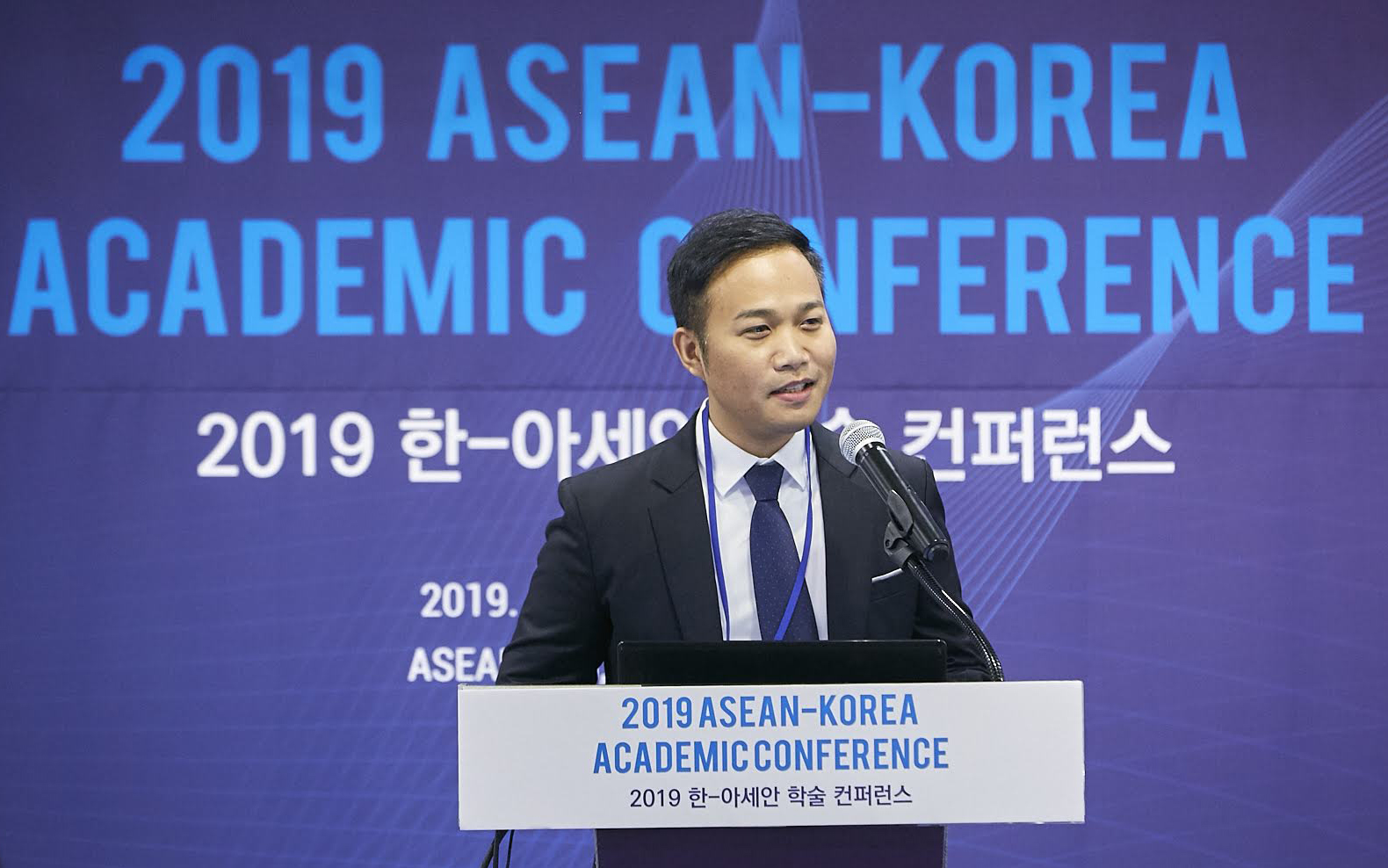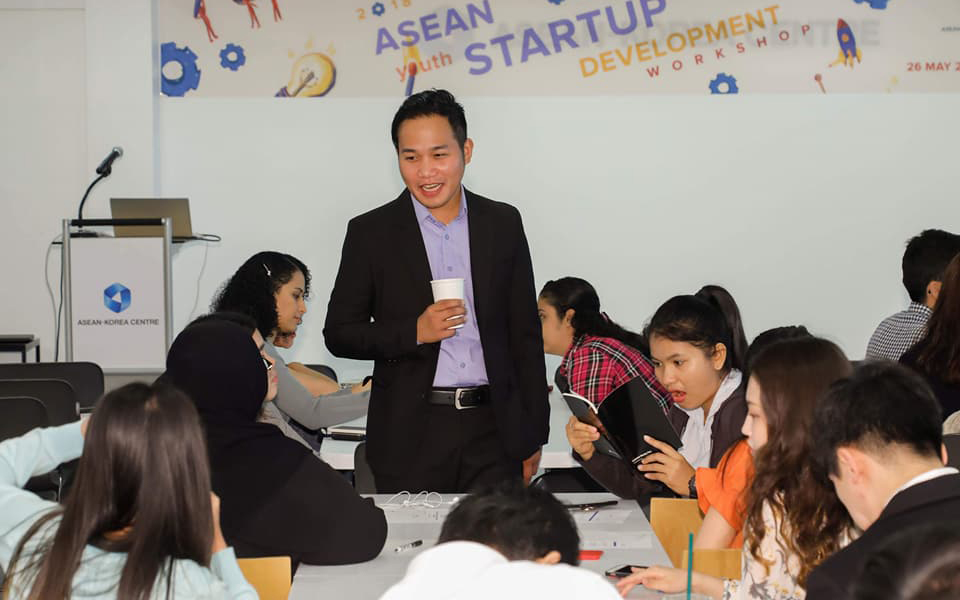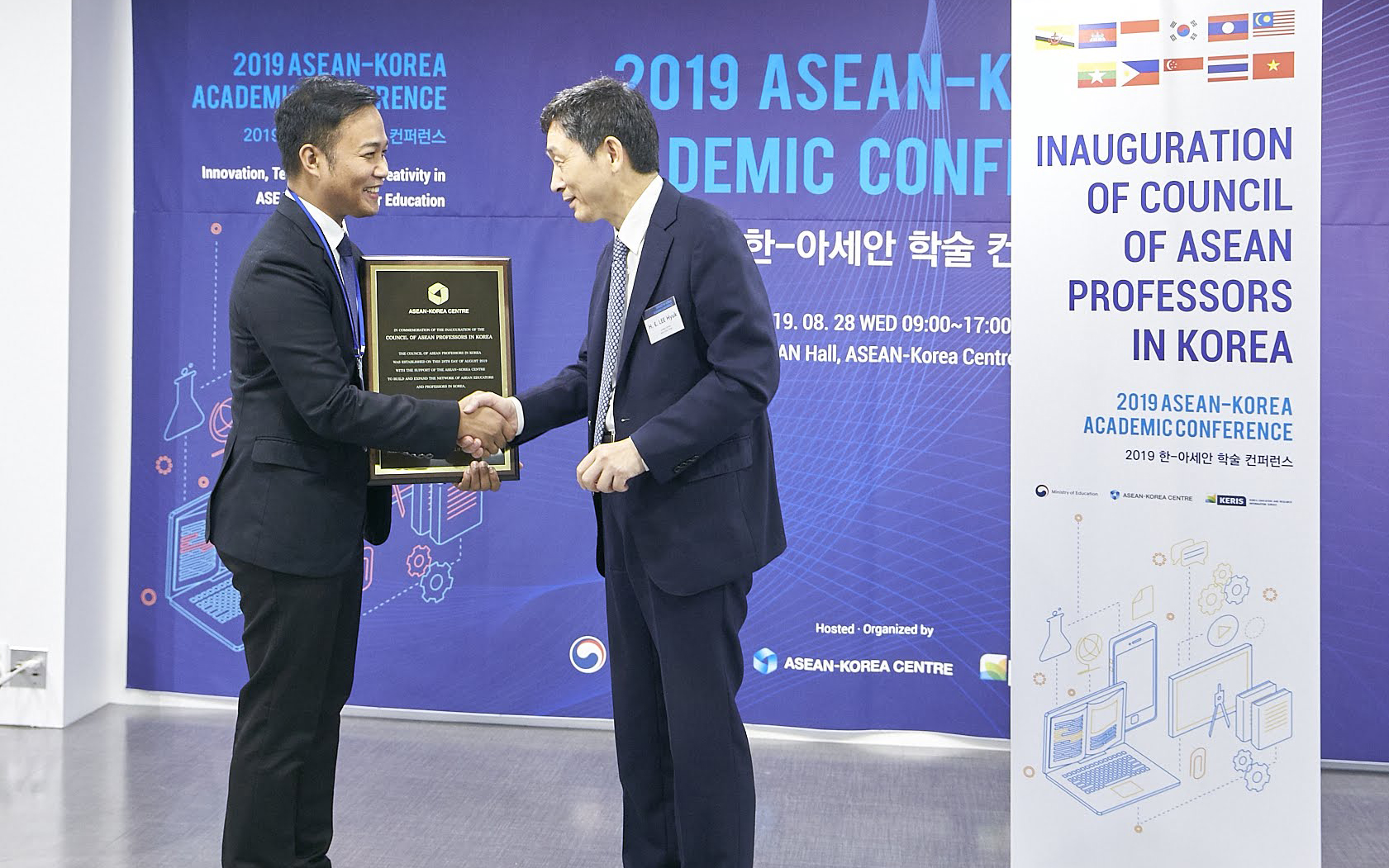- 한국어
- English
- 日本語
- 中文
- العربية
- Español
- Français
- Deutsch
- Pусский
- Tiếng Việt
- Indonesian
By Honorary Reporter Wendy Palomo from the Philippines
Photos= Joeffrey Maddatu Calimag

The successful ASEAN (Association of Southeast Asian Nations)-ROK (Republic of Korea) Commemorative Summit and the inaugural Mekong-ROK Summit held in Busan from Nov. 25-27 were the biggest events of the Moon Jae-in administration.
To support academics from the ASEAN region who are working in Korea and the large number of students in the region studying here, the Council of ASEAN Professors in Korea (CAPK) has played a leading advisory role for Southeast Asian professors in Korea as well as a valuable resource of the ASEAN-Korea Centre. Since its inception in August this year, the CAPK has received full support from the center's director Lee Hyuk, who said he believes academia plays a pivotal role in achieving mutual understanding between Korea and ASEAN and promoting bilateral people exchanges.
The CAPK President Joeffrey Maddatu Calimag is a professor of international business and global management at the University of Ulsan. He first came to Korea in 2002 as a global ambassador fellow at the KDI (Korea Development Institute) School of Public Policy and Management and earned a master's in public policy there. He went on to obtain his Ph.D. from Hanyang University in Seoul.
The following are excerpts of an interview with Calimag.
-What inspired you to form the CAPK?
It all started at a reception dinner in April 2018 by Jessy Yeunju Jang, acting secretary general of the ASEAN-ROK Centre. She said we, as ASEAN professors in Korea, play a crucial role in facilitating a stronger partnership between ASEAN and Korea, especially in education exchanges. I gave a presentation on a clear picture of teaching in Korea as an ASEAN professor and how we can contribute to national development.
-What is the CAPK's mission?
Beginning with an initiative of the ASEAN-Korea Centre, the CAPK was formed as an advisory committee among professors from ASEAN countries working in Korea. The council's mission is to enhance awareness of ASEAN countries among Koreans and build stronger relationships between Korea and the region, especially through the council's academic members in Korea.
-What programs do the CAPK run?
Since our inception, we have connected the council to Korean government agencies such as the International Cooperation Division of the Ministry of Education. We are also active as advisers and judges in various programs organized by the center. We conducted earlier this year a seminar and workshop for academics and researchers and provided information for grant opportunities. Next year, I would say the CAPK will be a little ambitious in producing a book that answers one question: Who are ASEANs in Korea? This publication will answer all sorts of relevant questions. And we will hold a conference we started earlier with a plan to have an international conference. And of course, we will connect our members to Korean government ministries and agencies as part of our team building.

-How is the CAPK relevant to President Moon's policies and the summit?
In my speech made at the CAPK's inauguration on Aug. 28, I said, "ASEAN as a region is an important partner of Korea in pursuing progress and further growth by cultivating their synergies and complementing each other's strengths. More significantly, the New Southern Policy of President Moon Jae-in compels us to be more active in capturing these opportunities and (responding to) threats that could stem from growing and stiffer global competition, while building on our strengths and reassessing our shortcomings."
Moreover, let me quote ASEAN-ROK Centre Secretary-General Lee Hyuk on the CAPK's role in ASEAN-Korea relations. He said, "As different layers of people-to-people exchanges among ASEAN and Korean people burgeon with the deepening of ASEAN-Korea relations, the CAPK could play an active and significant role in the intelligentsia of the two sides, which can influence their students and general public in the long run. ASEAN professors in Korea will contribute to public diplomacy efforts to deepen understanding of ASEAN and ASEAN-Korea relations among Koreans, expand the network of professors and researchers in ASEAN and Korea, and encourage scholars in ASEAN to join the community in doing research and teaching in Korea."

chaey0726@korea.kr
*This article is written by a Korea.net Honorary Reporter. Our group of Honorary Reporters are from all around the world, and they share with Korea.net their love and passion for all things Korean